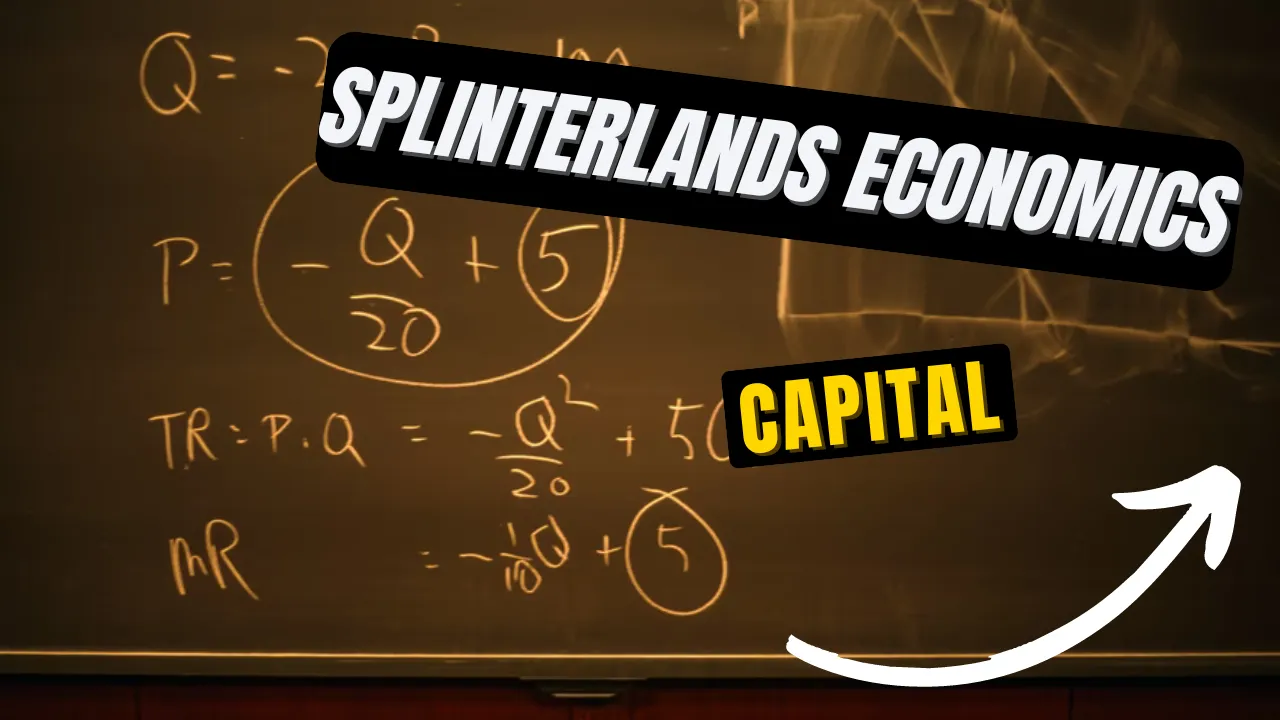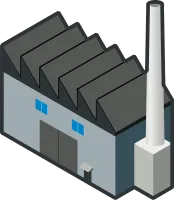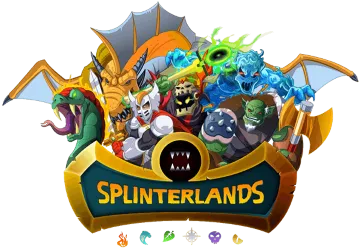Hello everyone! We are back again today with another edition of Splinterland Economics - a series in which we introduce a basic economic concept and then apply it to Splinterlands. If this is your first time reading, just to tell you a little bit about myself: my day job is in an unrelated area but I consider myself a little bit of economics nerd - I read a little (or maybe way, way) more news than I should, double majored in econ, and am obsessed with optimization. I love the way Splinterlands is equal parts card game and resource allocation game. My goal with these articles is to share a little bit of what I know with you all.
While the name of our subject today may also be used to refer to a seat of government, it also has an important meaning in economics. If you are ever trying to make a big decision in your asset allocations or want to analyze a particular person or entity's finances then you are going to want to be familiar with this topic. Today, we are talking about Capital!

What is Capital?

In economics, the term "capital" may be used to refer to two related but slightly different concepts, both of which we will be going over today. In classical economics, "capital" refers to a fixed factor of production - that is, a durable asset which may be used to produce other goods. In finance, "capital" has a broader meaning - any object which is liquid and may be used or spent in order to produce or obtain goods. In order to avoid confusion, for the rest of this post I will be using "factors of production" to refer to the first type of capital as , and "liquid capital" to refer to the second type.

In economics we care about capital - in both senses - because they help to determine how much stuff is produced as a society. Factors of production are used to produce goods, and liquidity is a tool which gives individuals the means to utilize those factors of production. As an example, let's consider a hypothetical pre-existing factory. This factory is a factor of production and is able to be used to produced some sort of goods for consumers to purchase and use. A prospective entrepreneur may be able to put the factory into use in order to produce those goods and provide a valuable contribution to society, but doing so requires liquid capital - cash to pay for maintenance and utilities, to compensate workers for providing their labor at that factory, etc. Both types of capital are necessary - without having them, either there would be no production available at all due to lack of equipment, or there would be valuable factors of production sitting idle because nobody was there to use them.
One last note on capital - capital is not limited to factories or cash. One may accumulate social capital by forming relationships with people or groups, which may be pay off through favors or good will. And there is also the concept of human capital, which may be earned by investing in yourself (or others) in order to improve your skills and productivity. Regardless of the type, more capital will generally result in more production, and therefore more income.
How do we apply it to Splinterlands?
In Splinterlands, there are few existing examples of capital in the sense of factors of production, since players are not producing goods. However, there is a major one on the horizon - Land. Land, as envisioned by the Splinterlands developers, will be used to produce resources and spell cards, adding another element of player ownership and an additional level to the game. This much-delayed feature has been the subject of plenty of both speculation and salt - mostly because the players who have invested in plots have been waiting for a long time, and are looking forward to being able to put their capital to good use!
Splinterlands also has a strong community aspect. Players work together in guilds or larger alliances, and many of the biggest holders in the game communicate with each other on Discord and interact outside of the game through various social media or streams. So as you may imagine, social capital is a powerful force in Splinterlands. Players with strong reputations have more pull and may be able to make the markets for particular items move with their comments or actions, and may be trusted enough for people to be willing to participate in group purchases or other financial endeavors. Social capital is set to play an even larger role as SPS validators become more fully implemented, as a significant portion of the rewards will be determined through players voting with their staked SPS.
Finally, Splinterlands is a game, and games tend to be player by...well, players. Different players bring different skillsets to the ecosystem, and all of them are forms of human capital. Whether it is being a hardcore gamer who is able to pilot decks of cards to the leaderboard, a skilled programmer who can write programs to facilitate actions on the blockchain or in-game, or some other skill, every human playing Splinterlands brings their human capital with them into the ecosystem. Of course, whether they choose to utilize that capital here is up to them!
Why should we care?
Understanding how capital works, including some of the less obvious types, helps us to better evaluate the value of assets - tangible and otherwise. Accumulating capital is an excellent goal for nearly every investor, and being aware of the different types of capital, as well as how to obtain and use them, is an important step in being able to begin to grow your own personal stockpile. Other forms of capital are not to be neglected either - taking the time and care to invest in yourself and learn new skills, or to build relationships with others is a worthwhile use of your efforts, and can certainly pay off in the long run!
Thank you so much for reading all the way to the end. Interested in seeing some more of my writing in the future? Be sure to give me a follow! In the meantime, if you'd like to see some of my recent posts:
A River-sal of Fortune - Using River Nymph in Battle! - Last week's battle challenge, featuring River Nymph!
Splinterlands Economics: Leverage - An introduction to the concept of leverage, and how we can apply it to Splinterlands!
Splinterlands Economics: First Mover Advantage - An introduction to the concept of first mover advantage, and how we can apply it to Splinterlands!
Thinking about giving Splinterlands a try but haven't signed up yet? Feel free to use my referral link: https://splinterlands.com?ref=bteim, and be sure to reach out to me if you have any questions!
All images used in this article are open source and obtained from Pixabay or Unsplash. Thumbnails borrowed with permission from the Splinterlands team or made in Canva.

